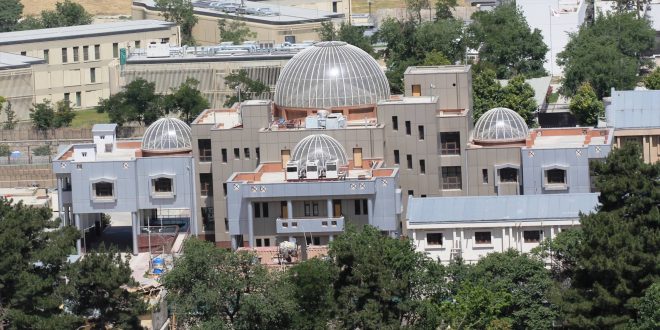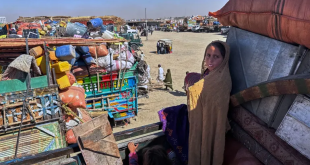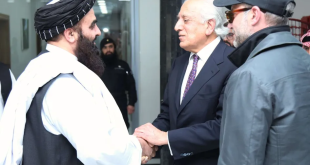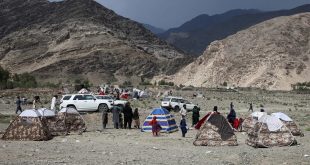KABUL – In a major diplomatic development, India has reopened its full-fledged embassy in Kabul, restoring complete diplomatic engagement with Afghanistan after four years of limited presence. The move marks a significant step in New Delhi’s efforts to re-establish ties with the Taliban administration and deepen bilateral cooperation in humanitarian and development sectors.
The Ministry of External Affairs (MEA) announced the upgradation of India’s Technical Mission in Kabul to a full Embassy of India “with immediate effect.” The mission will resume normal operations in the coming days. India’s embassy had been shut down in August 2021, when the Taliban took power after the withdrawal of U.S. and allied forces, prompting most foreign missions to leave the Afghan capital.
“India remains committed to the sovereignty, independence, and territorial integrity of Afghanistan,” MEA spokesperson Randhir Jaiswal said, adding that the move reflects India’s intention to “deepen bilateral engagement” with the Afghan people through development assistance, educational programs, and humanitarian support.
The decision follows the recent visit of Afghanistan’s acting Foreign Minister, Amir Khan Muttaqi, to New Delhi — a rare high-level exchange that signalled warming ties between the two governments. Kabul has welcomed India’s decision, with Muttaqi saying Afghanistan will soon send diplomats to New Delhi as part of a “step-by-step strengthening” of relations.
Since June 2022, India had operated only a technical mission in Kabul, focusing on humanitarian relief — including food, medicine, and scholarships. The reopening of the full embassy suggests New Delhi’s readiness to play a more assertive role in Afghanistan’s reconstruction and political future, despite the Taliban’s controversial rule and global isolation.
Analysts see the move as part of India’s broader regional recalibration amid shifting geopolitical realities. With Pakistan’s influence in Kabul strained by recent border clashes, India’s diplomatic return positions it to regain strategic foothold in Afghanistan — a country long central to South Asia’s security and trade dynamics.
However, questions remain over how India will manage direct engagement with the Taliban government while maintaining its long-standing advocacy for women’s rights, inclusive governance, and counterterrorism commitments. Security risks also persist for foreign missions, given Afghanistan’s volatile environment and the resurgence of militant groups such as the Islamic State–Khorasan Province (ISKP).
Still, for both nations, the restoration of India’s embassy represents cautious optimism — and the first concrete sign of a thaw in relations since 2021.
 Afghanistan Times Latest News and Analysis from Afghanistan and the Region
Afghanistan Times Latest News and Analysis from Afghanistan and the Region




